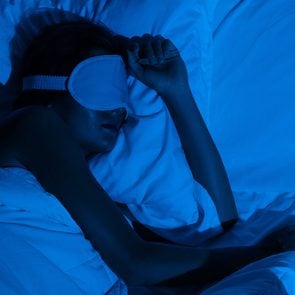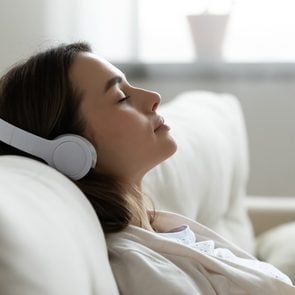Mental Health Apps You’ll Want to Install Right Away
Under pressure? Check out the best mental health apps for mindfulness, meditation, relaxation and sleep.
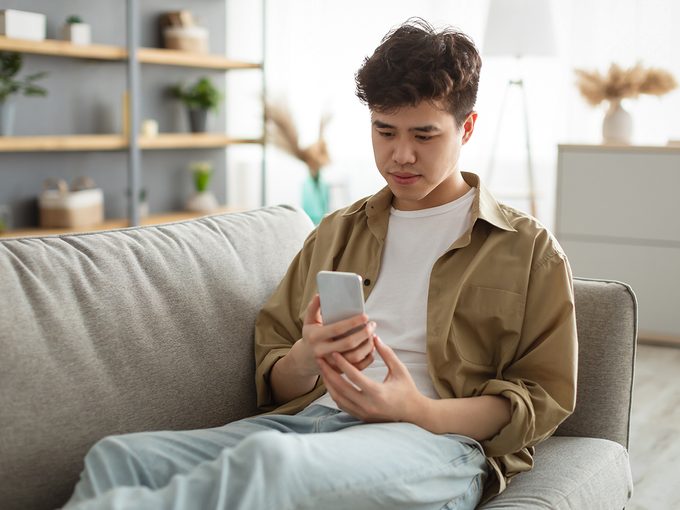
The Best Mental Health Apps in 2023
Millions of Canadians struggle with mental health issues. As you might expect, the pandemic didn’t help matters. According to a recent national survey, one in four Canadians aged 18 and older screened positive for symptoms of depression, anxiety or post-traumatic stress disorder (PTSD)—up from one in five pre-Covid-19.
While nothing replaces the services of a mental health professional, including therapy, apps are a convenient and practical way to find little moments of Zen throughout the day—especially as you always have your phone with you.
The following are a few recommended downloads for iOS (iPhone, iPad) and Android devices (such as a Samsung Galaxy or Google Pixel phone), although many offer websites for desktop access, too. Most are “freemium” apps, meaning they don’t cost anything to start, but paying users can access additional content and features.
Note: If you suffer from more than just the occasional “blues” or a sleepless night, be sure to seek medical attention from your physician or via a reputable mental health organization, such as CamH or the Canadian Mental Health Association.
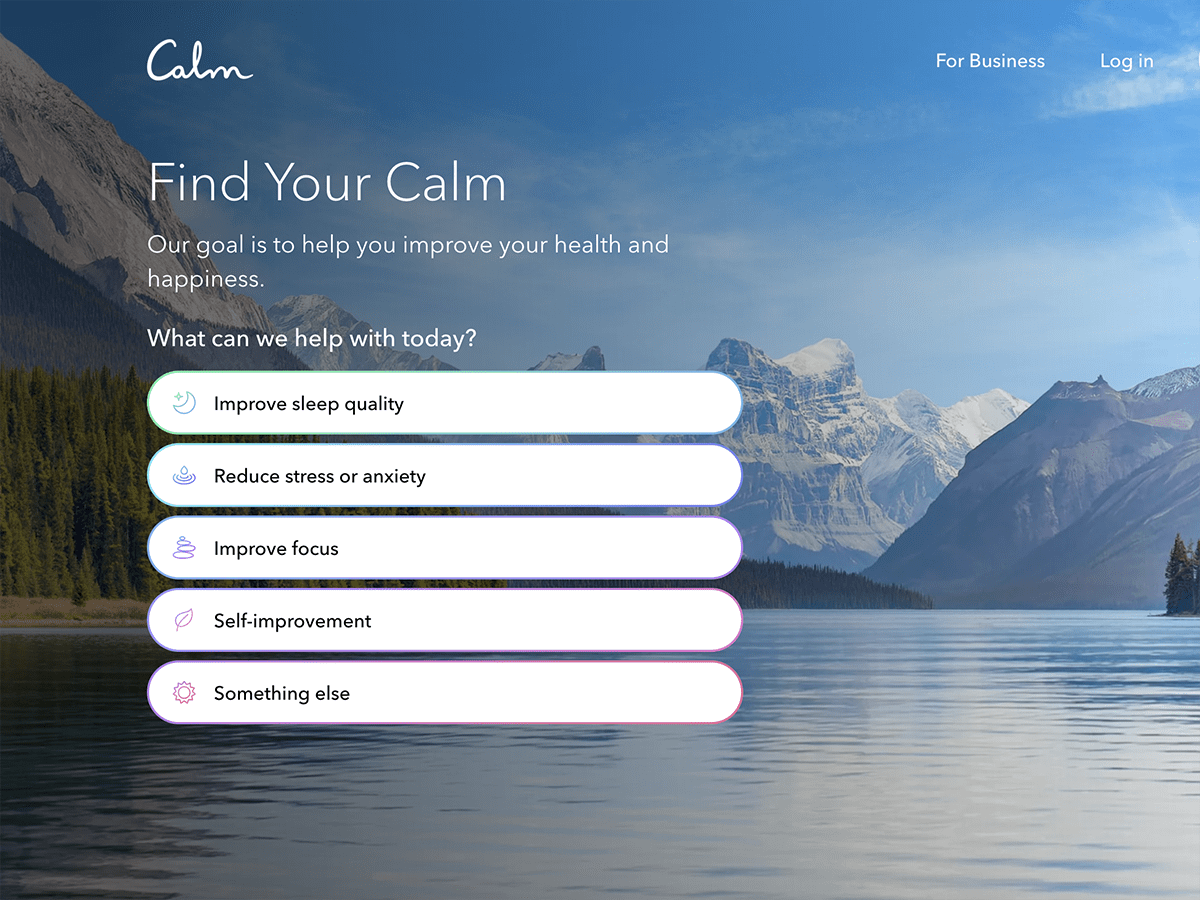
Induce calm, whenever and wherever
Calm
One of the biggest mental health apps on the market is still one of the best.
Whether you’ve got three minutes or a full half-hour to spare, Calm has several hundred audio-guided sessions of various durations to squeeze into your busy schedule. Choose the subject that’s relevant to you, whether it’s “Managing Stress,” “Breaking Habits” or “Self-Esteem,” tap to launch the session, close your eyes, and allow the soft-spoken instructors guide you through mindfulness and meditation exercises. Track your progress with “gamification” elements like daily streaks, as well as a running tally of time spent meditating. For a more structured approach, consider the 7- and 21-day programs. While there are free sessions to get you started, subscriptions start at $12.99/month or $69.99/year.
Pro tip: If you own a smart speaker like a Google Nest or Amazon Echo, you can wake up your personal assistant and simply say “Open Calm” to start a session on-demand.
Other great audio-centric mental health apps include Headspace, Sleep Cycle, and Simple Habit.
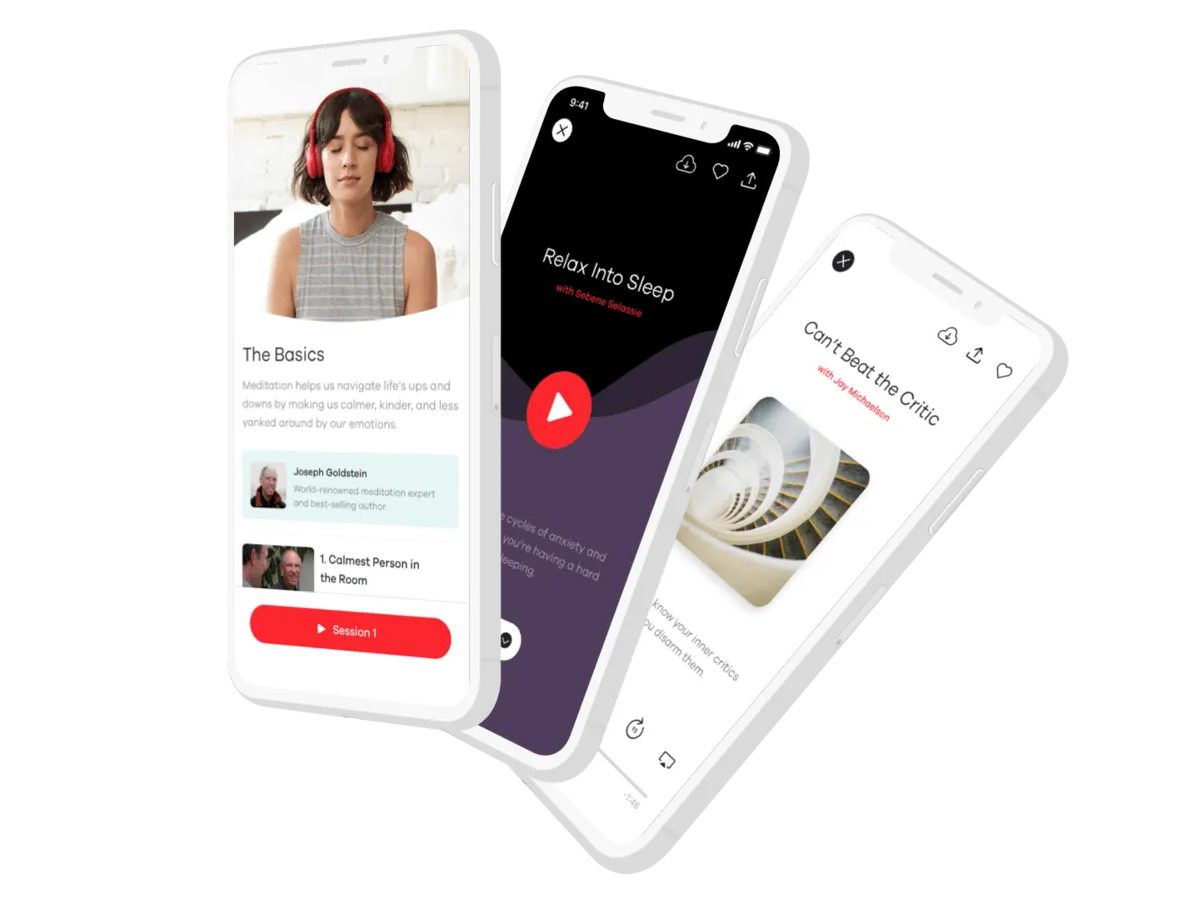
Improve your mood—and your outlook
Ten Percent Happier Meditation
Specifically designed for “fidgety skeptics,” Ten Percent Happier Meditation offers clear and simple meditation lessons—with video.
Led by New York Times bestselling author and ABC News anchor Dan Harris—who suffered an on-air panic attack in 2004, which prompted him to write the book Ten Percent Happier—the app features quick meditations by respected teachers, available whenever you are.
Through the iOS or Android app (as well as the website), Ten Percent Happier Meditation offers access to a seven-session introductory course, daily meditation videos (including offline access), guided audio lessons (for when you can’t look at a screen), advice and tips to applying mindfulness to your personal and professional life, and new content added monthly to keep things fresh. While the app is free to download and use, members get a lot more content, including a library of more than 500 guided meditations, for $11.99 per month (or $124.99 per year).
Here are 10 mental health podcasts worth adding to your playlist.
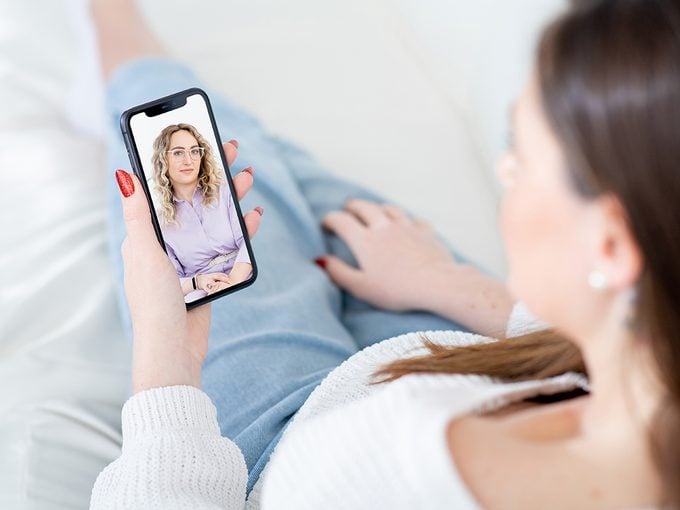
Chat with a therapist
There are a few mental health apps that put a licensed therapist in your pocket.
Talkspace, for example, offers confidential and relatively affordable therapy sessions, where you can send texts, audio, pictures, and video messages to a therapist from the app or your web browser. (You might have seen world champion swimmer Michael Phelps endorse this app in commercials.) Rates average around $150 per hour, but it’s best to confirm in advance so there are no surprises (and always check with your health insurance provider to determine coverage, if any).
Similarly, BetterHelp provides access to more than 30,000 trained and accredited therapists. A pre-screening questionnaire helps ensure a strong match based on your specific areas of concern, and the live sessions are hosted on BetterHelp’s secure platform, regardless of what device you’re on. It should be noted that BetterHelp is subscription-based, starting from around $100-$130 per week (billed every four weeks). Along with live sessions, membership includes unlimited text, video, and audio messaging.
Other therapy-centric mental health apps and/or websites include Sanvello, Maven Clinic (designed for women), and TELUS Health Virtual Care (formerly Akira).
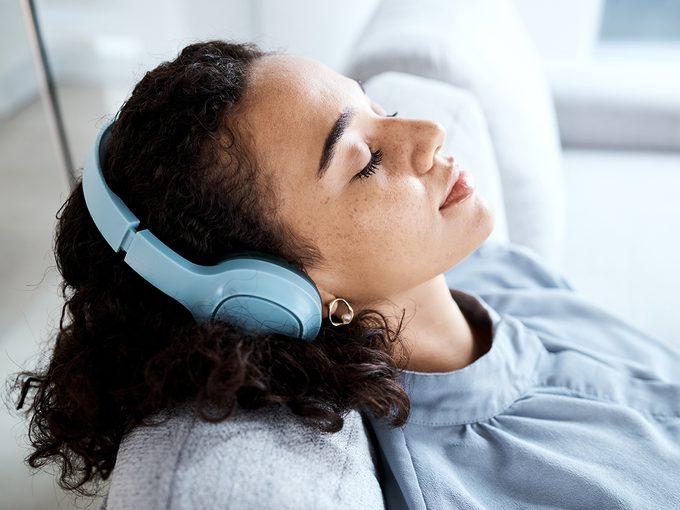
Sleep better
We all know how important it is to get a good night’s sleep, as it promotes better concentration and productivity, reduces your risk for heart disease, and can even boost your immune system.
While there are several factors that could impact the quantity and quality of your sleep—aging, diet, stress, room conditions, and alcohol consumption, to name a few—a Canadian-made app may be able to help you fall asleep easier. (I know, I know, staying asleep is another thing altogether.)
Formerly Relax Melodies, Montreal-based BetterSleep helps you fall asleep by letting you choose from a myriad of soothing nature sounds, like rain on a tin roof, a crackling fire, whooshing waves, or wildlife in a forest. If you can’t find exactly what you’re looking for, you have the option to create your own “soundscape,” too. The app also includes white noise options, meditation sessions, bedtime stories, and a section on SleepMoves: a series of body-mind exercises and relaxation techniques. Monthly premium plans start at $9.99 a month.
Other mental health apps and online resources worth exploring include PocketWell (Wellness Together Canada), MindShift, BounceBack, What’s Up Walk-In, MindDoc, iMoodJournal, and Breathe2Relax.
Based in Toronto, Marc Saltzman has been “breaking down geek speak into street speak” for more than 25 years. Follow Marc on Twitter for his “Tech Tip of the Day” posts, or subscribe to his Tech It Out podcast.
After you’ve installed these mental health apps, check out the best sleep podcasts to doze off to.
